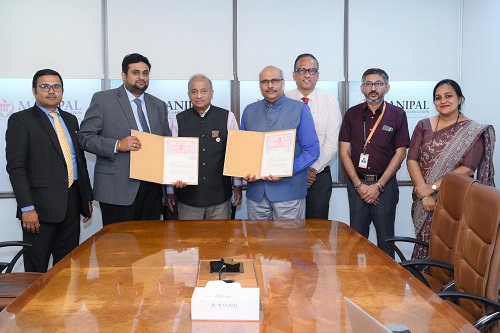India is ranked as the fourth strongest military in the world, just behind the US, Russia and China, according to the Global Firepower Index, a data platform that analyses statistics to determine a nation’s conventional war-fighting capabilities.
Meanwhile, Pakistan, a neighbour with which India went to war several times since independence and is fighting state-sponsored terrorism, is positioned at number nine in the index.
India vs Pakistan
The Global Firepower Index considers data from 60+ factors, which includes the country’s GDP, population, military strength, purchasing power, etc. to determine the fighting potential of a country in case of a full-blown conventional war.
Population and GDP
India is the second most populated country in the world and Pakistan ranks at number five. India has over 65 million people available manpower. Meanwhile, Pakistan has more than 10 million. A large young population that has reached military age and is available for service, favours India compared to Pakistan’s available manpower.
In the 2023-24 Union Budget, India allocated 13 per cent of its budget to defence at 5.94 trillion rupees ($73.8 Billion), while Pakistan has a defence budget of $6.34 Billion.
Military Strength
India has 800,000 more active military personnel compared to Pakistan and has 1.4 million serving officers and soldiers in different officers. Pakistan has 6.5 lakh active personnel. The number doesn’t include reserve and Paramilitary forces and takes the total number to over 5 million in India.
Air Force
India has 2,296 aircraft and ranks number four globally, while Pakistan has 1,434 aircraft. This category includes fighter aircraft in the Air Force and Navy, helicopters, transport aircraft, and fixed-wing and rotor-wing aircraft.
India has 606 fighter jets in 31 squadrons and more aircraft like the Tejas Mk1 and Mk1A, likely to be inducted in the coming years, though ageing jets like the MiG-21Bison, Sepecat Jaguars, MiG-29s will be out of service in the next 4-5 years. Pakistan has 387 fighter jets and has Chinese, French and American aircraft in its fleet. Pakistan has more attack helicopters but India has a good number of special missions, aerial tankers and transport aircraft.
Army
In ancient warfare, war elephants were the ‘tanks’ of the military. They were guided by humans to crush the enemy’s forces with their formidable strength. Many centuries later, these ‘War Elephants’ were replaced by machines with tracks and firepower and are called Tanks. India has a tank strength of 4,614 and ranks sixth globally, while Pakistan has 3,742 tanks. India has 1,51,248 armoured vehicles, three times more than Pakistan.
Armoured vehicles are crucial in deploying infantry to the battlefield quickly. They not only add firepower but also speed in an operation to ensure better manoeuvering during battle. “He who occupies the battlefield awaiting the enemy is at ease,” Chinese military strategist Sun Tzu wrote in his classic ‘The Art of War’. Armoured vehicles include tanks, infantry fighting vehicles, BMPs, and wheeled or tracked systems that can deploy troops quickly.
Interestingly, Pakistan has more self-propelled artillery systems than – A staggering difference of 612 between the two nations. India has 140 self-propelled artillery guns. India and Pakistan have a similar number of towed artillery guns.
Artillery plays a crucial role in a battlefield attacking enemy positions from a long distance to suppress targets and provide cover for forces to move. The Bofors guns turned the tide in India’s favour during the Kargil conflict in 1999 and played a vital role in capturing the icy heights.
Navy
India has a long maritime border with economic and security interests in the Bay of Bengal, Arabian Sea and the Indian Ocean. Meanwhile, Pakistan has a maritime border along the Arabian Sea only. India has a much stronger and larger Navy than Pakistan with a fleet strength of 294 compared to its arch-rival’s 114.
Two aircraft carriers – INS Vikramaditya and INS Vikrant and other platforms like destroyers, corvettes, frigates, and submarines, make India a Blue-water navy, a maritime force that can operate globally and can bring its fighter jets and other lethal weapon systems to any part of the world with its carriers. The US Navy is the largest Blue Water Navy in the world, it can operate militarily in minutes in any part of the world.
Pakistan has zero aircraft carriers and its limited strength makes it a ‘Green-water Navy’ that can operate in its region.
Other factors used by the index to compare India and Pakistan are geography, maritime border, purchasing power, external debt, road network, oil and gas production and consumption, land area, waterways, labour force, etc.












